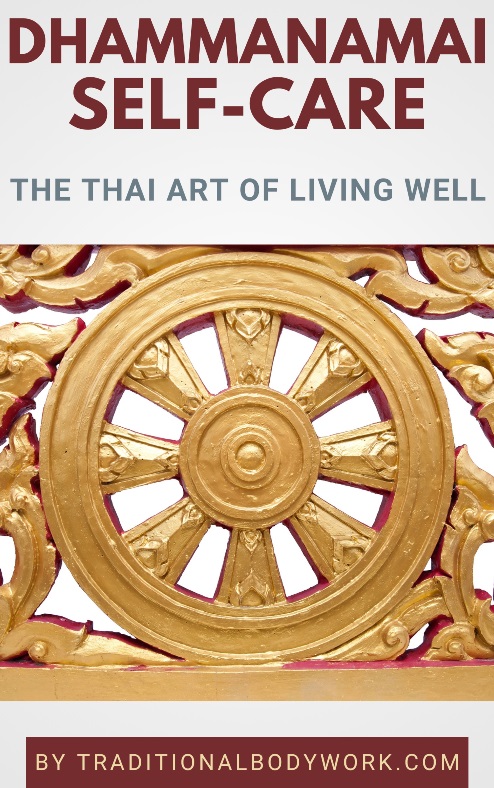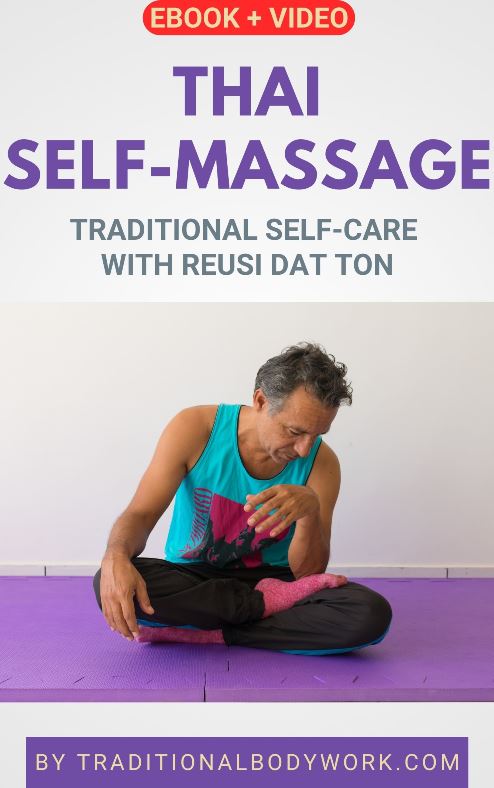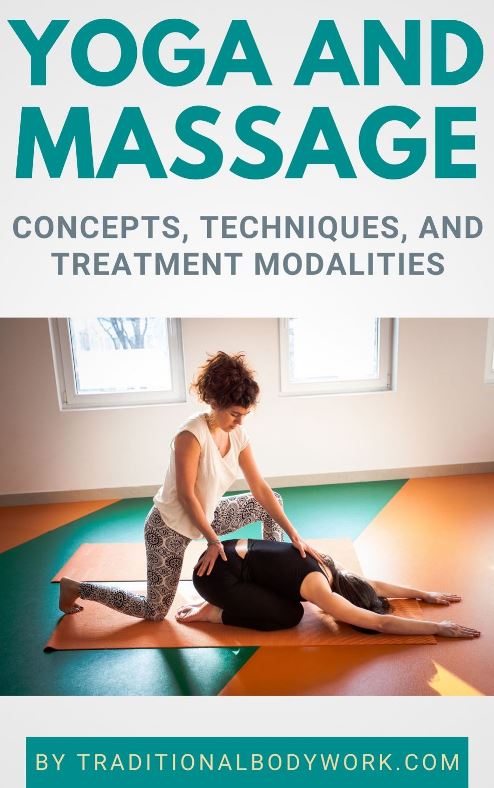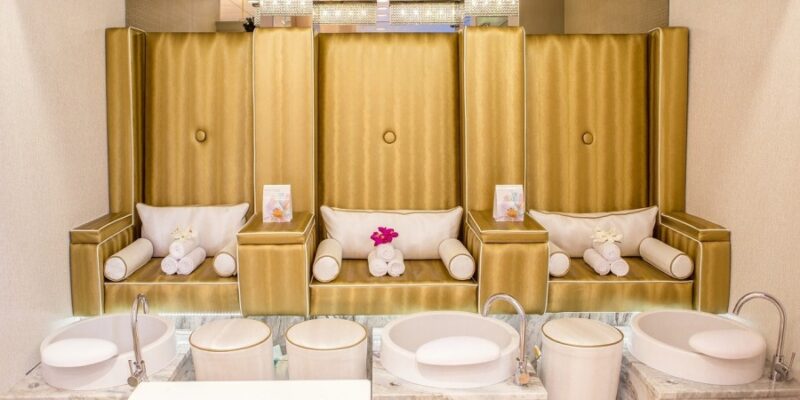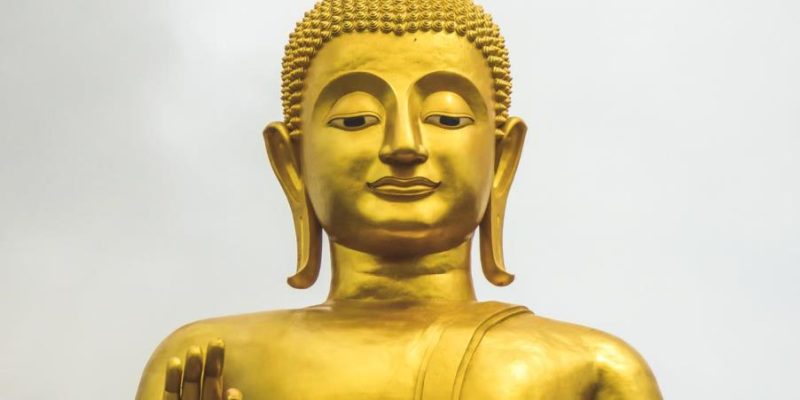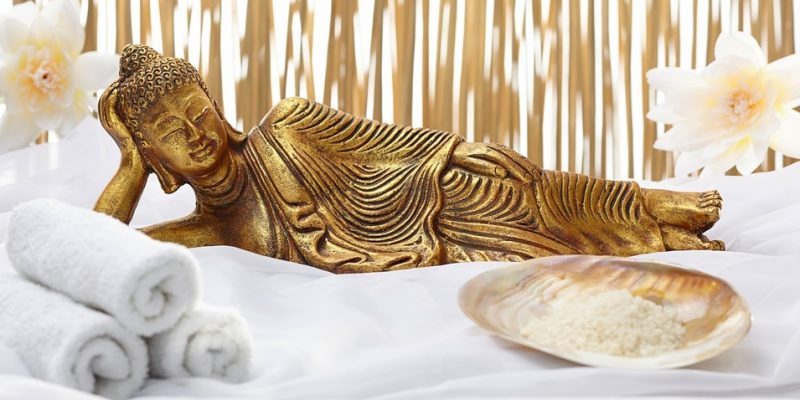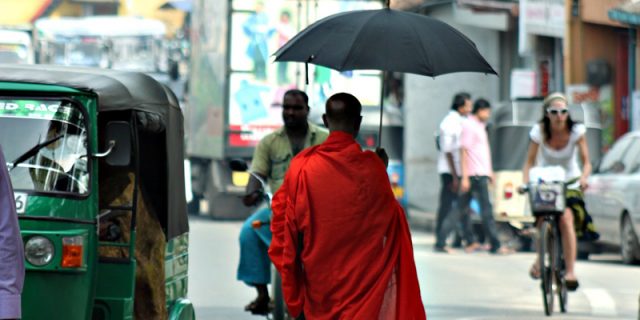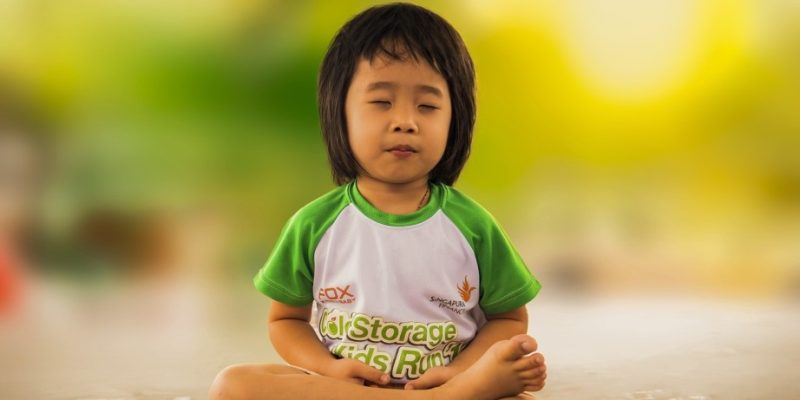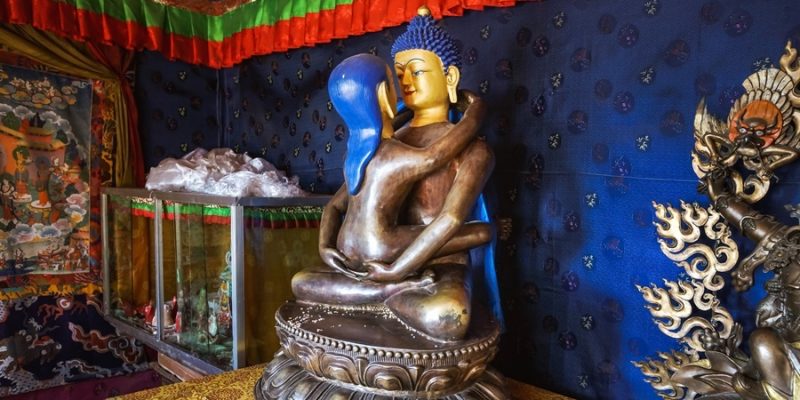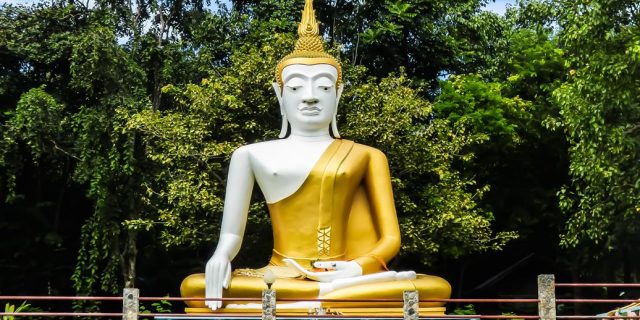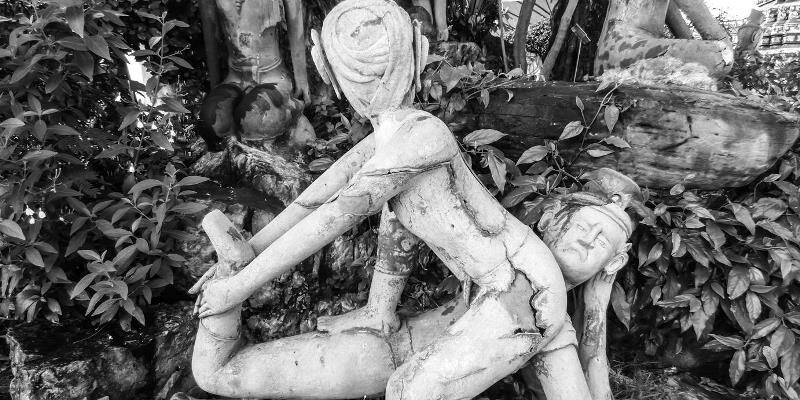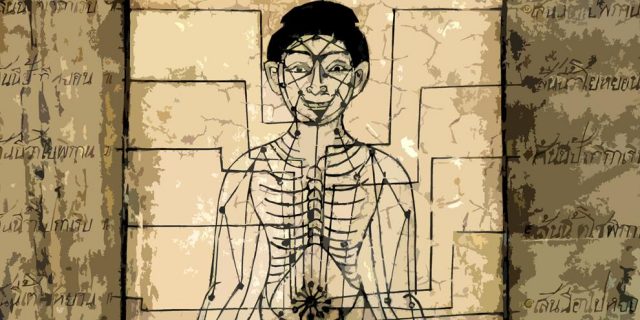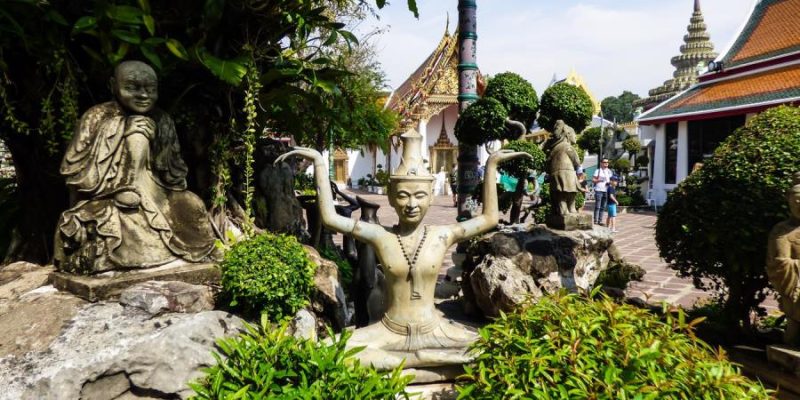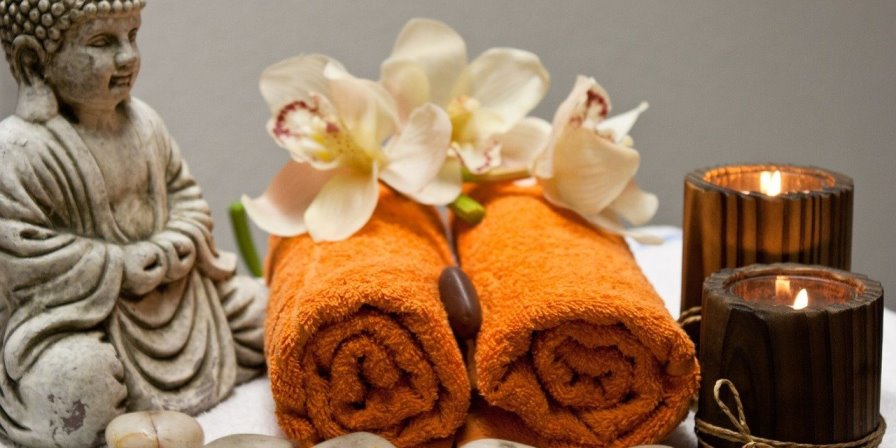
Thai Massage as practiced in the West is generally quite different compared to the way it’s applied in Thailand. There are many aspects of Thai Massage that are approached differently, but in this post, I’ll only take a look at the spiritual and esthetic perversion of Thai Massage in the West.
But first this: perversion is defined as “the change of something from its original course, meaning, or state to a distortion or corruption of what was first intended.” The word perversion is also used in a sexual context, that is, as “sexual behavior or desire that is considered abnormal or unacceptable.” To be clear: in this post I solely refer to the first meaning of perversion. Additionally, I don’t talk about the phenomenon of the Happy Ending Thai Massage either.
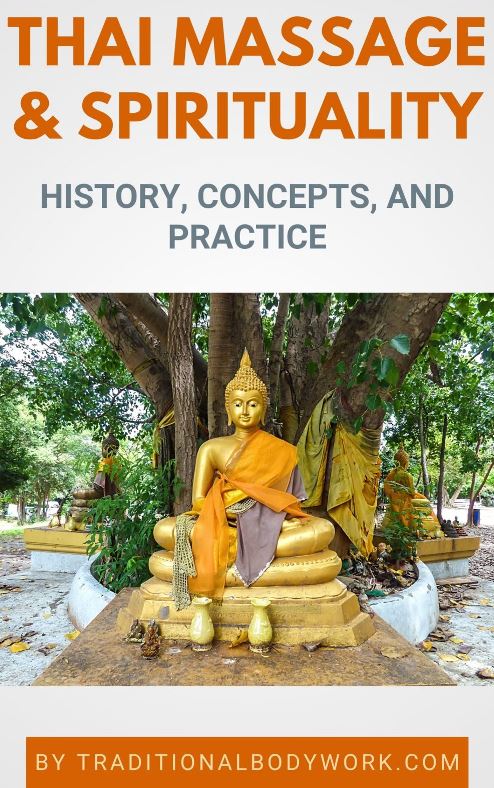
Historically, traditional Thai Massage in Thailand is (partially) embedded in a spiritual context. That is, elements of Buddhism and indigenous spiritual practices are often integrated in the way it’s practiced. In fact, giving Thai Massage is by many in Thailand seen as a form of Metta — loving kindness — which is a concept of Buddhist origin. Moreover, other Buddhist virtues, such as Karuna, Mudita and Upekkha play an equally important role in Thai Massage.
Now, when we learn Thai Massage in Thailand or — in a lesser degree — when we receive a Thai Massage there, we can often observe that the location of the massage session or class contains spiritual ornaments, such as statues of the Buddha and Buddhist saints, an altar, burning incense, wreaths, garlands, or flowers, to give some examples.
Sometimes the Thai Massage teacher or practitioner will pay homage to/through these spiritual attributes, that is, will pray, sing, or meditate before the start of a massage session or class. This is all very natural in the way Thai Massage is practiced. In fact, spirituality in Thailand is not something apart from daily life; it’s very much integrated in and part of the daily activities.
The latter is usually not the case in the West; religion or spirituality is seen as something apart, it’s something we practice separately, typically not integrated in our normal day-to-day activities. For instance, we may go to church on Sundays, but during the rest of the week, religion is often simply absent. I don’t say religion cannot make part of our daily life in the West; what I want to say is that it’s usually practiced as a “private and distinct activity.”
So, what you see is that the Thai Massage practice in the West often copies the way teaching or practitioner locations are ornamented in Thailand, but without the actual living (Buddhist) spirituality that comes with it naturally and inherently. It means that when we put Buddha statues in our massage room or class in the West it only has a decorative, rather esthetic value, and not an actual spiritual meaning.
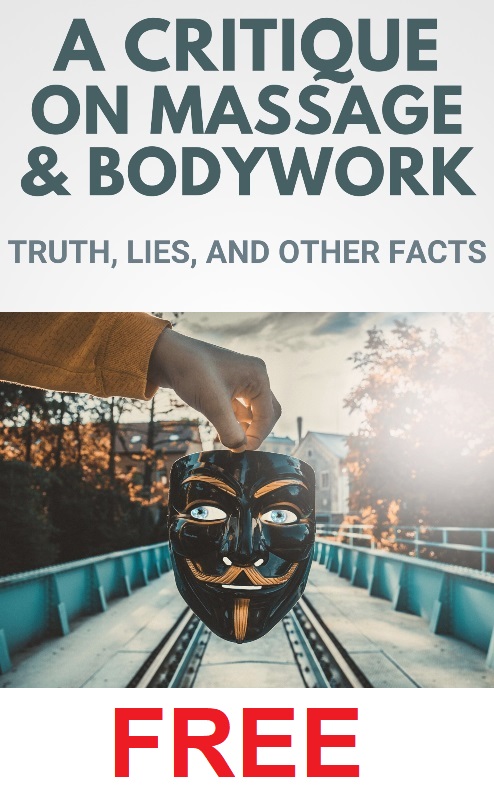
Of course, you’ll see that some therapists or teachers chant, meditate, or pray while uttering Pali Buddhist words, but — to be honest — in most cases that’s just a show, entourage, just to set a specific environment and ambiance, one that’s indeed often expected by clients or massage students.
But there’s more to it. In the West, Thai Massage sessions are often also marketed as a serene, meditative, and utterly spiritual and relaxing experience, in a quiet, individual, almost holy atmosphere and ambiance, which in the majority of instances in Thailand is not at all the case.
In Thailand, massage locations are usually very down-to-earth, loud, busy, and not so private, and the massage sessions are tough, done by practitioners wearing just normal clothes, and not the Thai traditional costumes you often see presented in the West.
Nevertheless, the typical spa-setting as created in the West has become increasingly present in Thailand, simply to accommodate the expectations of Westerners. It’s a form of reappropriating Western Thai Massage practices bringing them back in a modified form into Thailand.
In fact, just as with the spiritual perversion of Thai Massage in the West, there’s a growing spa-style esthetic perversion of Thai Massage occurring in Thailand. As for that, it’s very simple: the customer asks, well, the customer can and will get! Don’t get fooled here; for the Thai people, making money is almost as holy as Buddhism.


